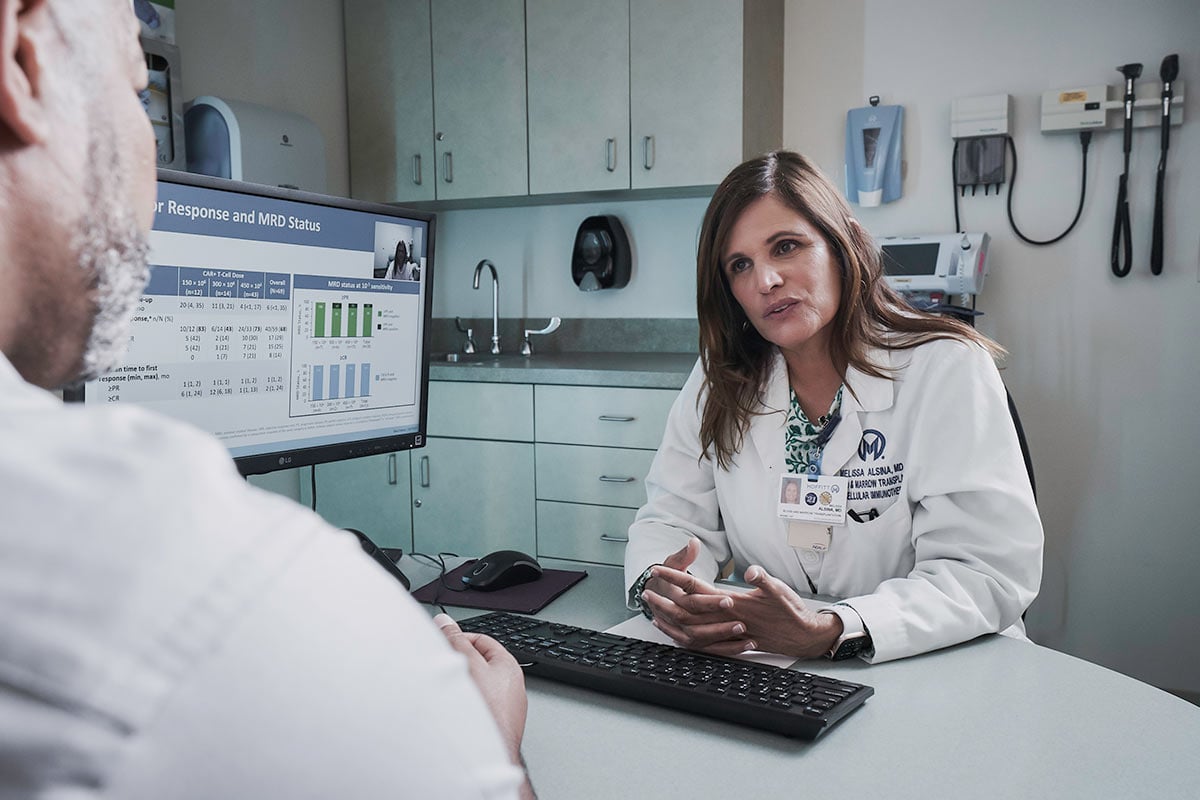
How Do Cancer Clinical Trials Work?
Clinical trials hold the key to advancing both medical knowledge and patient care. Through these tightly controlled research studies, scientists can evaluate the effectiveness of groundbreaking new treatment strategies, drugs, drug combinations, procedures and devices as compared to the current standard of care.
In many cases, the research team will include scientists and physicians, as well as data managers and clinical trial coordinators. Significantly, the team will also include both healthy volunteers and patients, who play a vital role in the success of these important studies. In fact, many of today’s patients are directly benefiting from the contributions of past clinical trial participants.
Why participate in a cancer clinical trial?
People may choose to participate in a cancer clinical trial for a variety of reasons. In addition to being among the first to benefit from a promising new treatment that is not yet available in other settings, a patient can receive highly attentive care from a team of medical experts who are dedicated to protecting his or her safety, health and well-being.
Along with patients who are known to have a specific malignancy, cancer clinical trials also need healthy volunteers. Both types of participants can feel good about contributing to medical advances that can ultimately help many others.
The informed consent process
 Before making the important decision to enroll in a clinical trial, a prospective participant will need to take part in an informed consent process. Members of the research team will provide a detailed document that fully explains the study, including its purpose, risks and potential benefits, as well as how long it is expected to last, the time commitment required and any tests, drugs or procedures that may be involved. Taking part in a clinical trial is completely voluntary, and a participant can opt to withdraw from the study at any time. To ensure that new information is promptly and clearly communicated, the informed consent process will continue throughout the clinical trial.
Before making the important decision to enroll in a clinical trial, a prospective participant will need to take part in an informed consent process. Members of the research team will provide a detailed document that fully explains the study, including its purpose, risks and potential benefits, as well as how long it is expected to last, the time commitment required and any tests, drugs or procedures that may be involved. Taking part in a clinical trial is completely voluntary, and a participant can opt to withdraw from the study at any time. To ensure that new information is promptly and clearly communicated, the informed consent process will continue throughout the clinical trial.
What happens after a clinical trial?
Once a clinical trial is completed, the research team will thoroughly evaluate the information gained through the study before making any final decisions about the significance of the findings and whether further testing is needed. The results may be included in a peer-reviewed scientific journal, allowing multiple experts an opportunity to review the report to help ensure that the analysis and conclusions are sound before it is published. After the effectiveness of a new treatment is confirmed in a clinical trial, it may become a new standard of care.

The End of Cancer Begins Here®
Find a Clinical TrialHow to find clinical trials
 As a leading cancer center that is firmly positioned at the forefront of cancer research, Moffitt Cancer Center has a robust portfolio of clinical trials. Our vital research studies offer opportunities for many patients at various points throughout their cancer journey. As we continue to open new doors that may lead to advances in the prevention, diagnosis and treatment of cancer, clinical trials are essential to help us to "step over the threshold" and fully explore what lies inside.
As a leading cancer center that is firmly positioned at the forefront of cancer research, Moffitt Cancer Center has a robust portfolio of clinical trials. Our vital research studies offer opportunities for many patients at various points throughout their cancer journey. As we continue to open new doors that may lead to advances in the prevention, diagnosis and treatment of cancer, clinical trials are essential to help us to "step over the threshold" and fully explore what lies inside.
If you would like to learn more about the research studies currently underway at Moffitt, one of our clinical trial navigators can help you explore your options and suggest opportunities that may be right for you. Call 1-813-745-6100 or 1-800-679-0775 (toll-free) or submit a clinical trials inquiry form online. After a cancer diagnosis, we know that every day counts, and we want to support you with compassionate care every step of the way.
